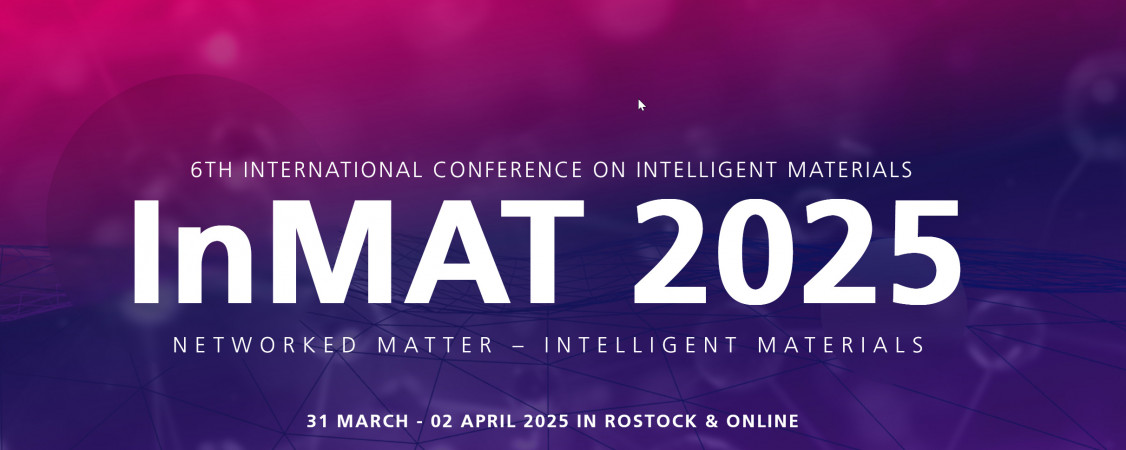
InMAT 2025: 6th International Conference on Intelligent Materials
Networked Matter – Intelligent Materials
https://dgm.de/inmat/2025/The concept of “networked matter” represents a visionary further development of intelligent materials by understanding material and its environment as a tight interconnected single unit.
Related research focuses on the interaction of materials with dynamic surrounding networks to effectively tackle global challenges in health, energy or the environment as a keystone of interdisciplinary research. This is already promoted by the initiatives Kiel Nano Surface and Interface Science (KiNSIS) at Kiel University and the Department of Life, Light and Matter (LLM) at the University of Rostock.
The conference will explore the various facets of the future vision of “networked matter” in the context of different interdisciplinary research collaborations. These include topics such as novel electrically active implants for bone and cartilage regeneration, deep brain Stimulation, exploration of light-matter interactions at interfaces, reverse engineering of sensory information pathways for bio-inspired computing architectures, and the development of magnetoelectric sensors for high-sensitivity bio magnetic field detection.
With a focus on fostering interdisciplinary collaboration, the conference aims to connect with the international scientific community, welcoming contributions from fields such as chemistry, physics, biology, engineering, analytics and theory.
Topics:
InMAT 2025 showcases groundbreaking topics in material science, featuring advanced analytics in intelligent materials, organic neuromorphic devices, and biomagnetic sensing. Highlights include innovations in bioelectronic systems, new materials for energy solutions, and exploring light-matter interactions in nanomaterials. This event promises to redefine technological boundaries, heralding the next generation of scientific advancements.
A: Analytics of...
A.1: Sensing and controlling in intelligent materials
A.2: Magnetostrictive and piezoelectric materials
A.3: In-operando analytivs of memristive devices
B: Biology of...
B.1: Organic neuromorphic devices
B.3: Information processing in biology
C: Concepts of...
C.1: Understanding catalysis as a network
C.2: Multiscale multiphysics modelling and simulation
C.3: Restoring function using electrostimulation
C.4: Inverse solutions for medical diagnostics
C.5: Magnetic field sensors
C.6: Modelling - „from nano to centi“
E: Engineering of ...
E.1: Sensor systems for medical diagnostics
E.2: Nanonetworks for neuromorphic applications
M: Materials of...
M.1: New materials for solar cells, photodetectors, batteries, telecommunication, photocatalysis
M.2: Bioelectronic materials and systems, Functionalisation of implant materials, Intelligent surface functionalisation
M.3: Memristive crossbar-arrays for AI hardware boosters
P: Physics of...
P.1: Light-matter interaction in molecular assemblies & nanomaterials
P.2: Advanced concepts for batteries and solar cells, progressive power electronics
The Scientific program is not yet available!

